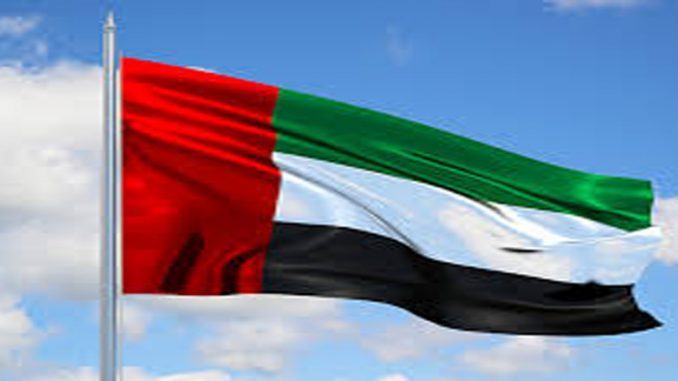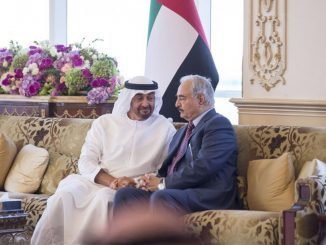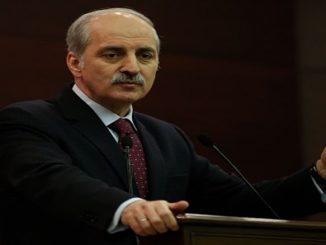
 BY: Abdel Hafez Al-Sawi*
BY: Abdel Hafez Al-Sawi*
The state budget is the most prominent example of social contract between citizens and the state, where the citizens get assured of the nature of economic policies, the burdens that they will bear, and the services they will receive. Also, they can hold governments accountable for how they spend the public revenues, the position of the budget regarding domestic and foreign debt, and the state’s perception of managing the economy in general. Finally, citizens can know the nature of the trends of the prevailing economic system though the state budget.
The talk about the budget is linked to that prominent relation between governments and the parliament, as the economic history shows that parliaments existed in order to discuss, approve, and oversee the budget; there is a famous English phrase saying, “No taxation without (parliamentary) representation”.
Recently, the UAE announced that the Council of Ministers approved a five-year budget (2017/2012), commensurate with the state’s five-year plan. The UAE government considered that it took a unique step – among other Arab states – by resuming the five-year budget, where Arab countries commonly adopt a one-year state budget.
* Features of the budget:
The five-year budget for the UAE allocated 248 billion dirhams (68.8 billion dollars) for the total expenditure; and the allocations of 2017 reached 48.7 billion dirhams ($ 13.5 billion). The details for the size of spending in 2017 came as follows:
- An amount of 25.2 billion dirhams were set for the sectors that are directly related to citizens and their services of (7 billion dollars), including the following services:
|
No. |
Sector | Amount in billion dirhams |
Percentage |
|
1 |
Public and higher education |
10.2 | 20.5 |
|
2 |
Health care and society protection |
4.2 |
8.6 |
|
3 |
Pensions |
4 |
8.2 |
|
4 |
Social development |
3.2 |
6.6 |
| 5 |
Housing |
1.6 |
3.3 |
This table was prepared by the writer, according to the data included in the press release of the UAE cabinet
- An amount of $ 20.7 billion dirhams (5.75 billion dollars), were allocated for the government affairs sector, including the following items:
|
No. |
Sector | Amount in billion dirhams | Percentage |
|
1 |
Federal projects |
3.3 |
15.9 |
|
2 |
Projects of federal ministries |
0.891 |
4.3
|
|
3 |
Development and modernization of the state’s electricity and water plants |
0.771
|
3.7 |
|
4 |
Sheikh Zayed Housing projects |
1.4 |
6.7 |
|
5 |
Building headquarters for police stations, civil defense, the GDRFA, and scientific labs |
0.215 |
1 |
| 6 |
Supporting government innovation |
2 |
9.6 |
This table was prepared by the writer, according to the data included in the press release of the UAE cabinet
* Budget targets
Through the press release of the UAE Council of Ministers on the five-year budget, and the budget of its first year (2017), a set of general goals were referred to without taking up sub-goals for each item, sector, or any economic or social activity. The following objectives were extracted:
* Providing the finest and the best services to the citizens.
* The UAE remains a state of security and safety of citizens and residents.
* Supporting the programs on strengthening the UAE’s relations regionally and globally.
* The development of the judiciary performance and providing excellent financial services.
* Signs of the lack of transparency
There is a set of remarks that can be monitored on the absence of control and transparency in the available data for the UAE’s budget, whether the five-year budget or the 2017 budget, including the following:
* Of course according to the so-called ‘citizens’ right to know’, the data of the UAE budget should have been clearly announced and published to allow citizens to know all the budget details. However, it is strange that the official website of the Ministry of Finance – which has supposedly prepared the budget – did not publish any data or even refer to the five-year budget, or the 2017 budget. Also, the website of the Federal Council, which has the powers to approve the budget as well as its final accounts, did not publish any data on this important matter.
The UAE Constitution states that the budget should be referred to the Federal Council at least two months before the beginning of the fiscal year, that is the UAE government was supposed to have referred the new fiscal year budget on Monday, October 31, 2016 to the Federal Council.
* Therefore, the United Arab Emirates has exited the list of countries covered by the Open Budget survey, which is issued by the “International Budget Partnership” foundation, where the survey for 2015 included nearly 102 countries, none of which are from the Gulf countries except Saudi Arabia, Qatar; and the two countries came at the back of the index, among the countries that do not provide data, or provide little data.
The index of the Open Budget Survey includes the country’s status in publishing the pre-budget statement, the executive budget proposal, the enacted budget, citizens budget, in-year reports, mid-year review, year-end report, and audit report – which are significantly missing in the UAE budget. Perhaps what we have mentioned of the absence of data on the sites of the concerned authorities is the best evidence for the lack of budget transparency in the UAE.
* The budget targets were not displayed in a way that can be measured, by showing the position of the services targeted by the 2017 budget, and the extent of their development, which makes evaluation at the end of the budget difficult or not possible.
* There was talk about the expenses with no reference at all to the revenues: its nature, how they are collected, and the position of the deficit or surplus in the five-year or the annual budget, as well as how the government can act towards the budget surplus or deficit.
In May 2016, the Emirate of Abu Dhabi announced its success in offering bonds worth $ 10 billion on two tranches – $ 5 billion each – the first for five years at an interest rate of 2.2% while the second tranche was for 10 years at an interest rate of 3.1%, which makes the question about the nature of the revenue important and necessary.
* Due to the brief press release on the budget, and overlooking any reference to any estimates of revenues, some concerns arose about the UAE government’s intentions to impose new taxes. But, Younis Khouri, the UAE deputy finance minister denied the government’s intention to impose new taxes in 2017, and that the government was not considering imposition of extra fees for government services.
* The UAE is a prominent model of the state capitalism, where it allows the private sector to exercise a major role in the economic activity, but it has the largest share of the private companies’ capital. The published figures of the 2017 budget did not show any data on the outcome of the domestic or foreign investment.
* How can the Emirati citizen read his country’s budget and its financial position while he does not know anything about the returns of the sovereign funds owned by the UAE abroad, most notably, the Abu Dhabi Fund, which is the second sovereign wealth fund in the world after Norway, with financial assets estimated at $ 750 billion. Also, what raises the concern of the UAE citizen or anyone following up the economic conditions in the UAE, is the fact that the Emirate of Abu Dhabi resorted in May to offer international bonds worth $ 10 billion.
* The simplest way to show data is to mention in front of each item of expenditure the figure included in last year’s budget with a justification for the increase or decrease of the new spending item in the new budget, explaining the rationale for the increase or the decrease, which was not available in the press release that was published on the UAE cabinet website.
* It is noteworthy that the composition of the Federal Council – which supposedly has the right to approve the budget and the year-end report – does not reflect the citizens well, as half of its members come through appointment while the other half is not elected by direct free ballot, which raises the doubts around the existence of real control over the budget by the legislature.
*Abdel-Hafez Al-Sawi is an Egyptian economist. He has many economic writings, including: The Post-Revolution Balance, the Employment of Zakat Funds in the Muslim World, A Development Vision, and the Egyptian Economy between the Taxes and the Zakat.
(Written exclusively for MEO on Saturday, Dec. 10, 2016, and translated from Arabic)



